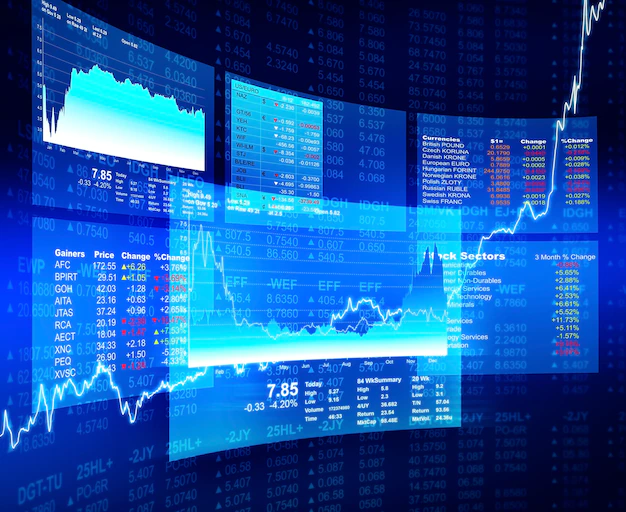
Banking Sector Pulls Down European Stock Markets
The world of finance was rocked by the recent collapse of U.S. lender SVB Financial Group, which caused a shift in interest rate expectations and weakened the U.S. dollar. Goldman Sachs no longer expects the Federal Reserve to raise interest rates at its upcoming March 22 meeting, causing the dollar index to slip as much as 0.55% to near one-month lows of 103.67. The market is now pricing a nearly 33% chance of the Fed sticking to its current rate and a 67% chance of a 25 basis point hike.
European stock markets took a hit on Monday, with the banking sector suffering significant losses. The primary concern was the potential for contagion from the collapse of the U.S. lender SVB Financial Group. The DAX index in Germany traded 2.2% lower, the CAC 40 in France dipped 1.9%, and the FTSE 100 in the UK fell 1.7%.
European Banks Face Serious Repercussions
Despite U.S. equity futures trading higher on Monday, the outlook in Europe was less optimistic. Concerns grew that the second-biggest lender to fail in U.S. history could have serious repercussions across the pond. Shares in some of the region's most significant lenders, including Commerzbank, Banco Santander, and UniCredit, were sharply lower. HSBC, the region's largest bank based on assets, agreed to purchase the U.K. subsidiary of SVB for just £1, rescuing a key lender for technology start-ups in Britain.
Shock to the Finance System Raises Speculation on Interest Rates
The collapse of SVB Financial Group has raised speculation that the Federal Reserve will pause its rate hiking cycle when it meets later this month. However, the European Central Bank, which meets on Thursday, is still widely expected to hike interest rates by another 50 basis points after recent data showed that underlying inflation in the Eurozone remained elevated.
Euro Up 0.67% Ahead of ECB Meeting
The European Central Bank is scheduled to hold its policy meeting on Thursday, and the euro was up 0.67% at $1.0704, hovering near the one-month high of $1.0737 hit earlier. The ECB is still expected to deliver a 50-basis point hike. The question is how hawkish the ECB will be, as they may signal there will be more rate hikes to come.
Safe-haven currencies such as the Japanese yen and Swiss franc benefited from the fallout from SVB, with the yen strengthening 0.8% to 133.88 per U.S. dollar and the greenback falling 0.6% versus the franc to 0.9155. Sterling was last trading at $1.2105, up 0.57% on the day.
Australian Dollar Surges 1.16%, Kiwi Gains 1%
The Australian dollar surged 1.16% to $0.6659, and the kiwi gained 1% to trade at $0.6195. Meanwhile, the two-year U.S. Treasury yield, which typically moves in step with interest rate expectations, was down 23 basis points at 4.3575%, on track for its biggest three-day decline since Black Monday in 1987. The reason for this significant repricing in rate hike expectations is the collapse of the banks. However, if there is no contagion, expectations for rate hikes could be revived quickly.
Oil Prices Edged Lower on Biden Administration's Approval of Major Oil Drilling Project
Oil prices edged lower on Monday, following a Reuters report that the Biden administration will approve a major oil drilling project in Alaska. The project is expected to produce about 600 million barrels of oil equivalent over its life, peaking at 180,000 barrels of oil per day, according to ConocoPhillips. Crude prices had earlier benefited from the drop in the U.S. dollar on raised expectations that the Fed will temper its monetary tightening policy going forward. The dollar index fell to two-week lows, making oil cheaper for holders of other currencies.
Don't Miss Out on the Key Economic Events to Watch Today
Today's economic calendar is showing a relatively quiet day in the markets, with few economic events scheduled to take place. Nevertheless, there are some important data releases that could influence market sentiment.
Starting with Japan, we have the BSI Large Manufacturing Conditions for the first quarter, which is expected to show improvement from the previous quarter's reading of -3.6. This data could provide some insight into the health of Japan's manufacturing sector and could impact the yen's value in the forex market.
Moving to Turkey, we have the release of the monthly and yearly retail sales figures, which are expected to show growth from the previous period. These data releases could provide an indication of consumer confidence and spending patterns in Turkey and could impact the country's currency, the Turkish lira.
In Europe, the Eurogroup Meetings are scheduled to take place, and while they do not typically produce significant market movements, any commentary or updates from European policymakers could affect the euro's value.
Later in the day, Brazil's central bank will release its Focus Market Readout, which provides insight into market expectations for Brazil's economy. This data release is closely watched by investors as it can impact the Brazilian real's value in the forex market.
Lastly, we have India's Consumer Price Index (CPI) for February, which is expected to show a slight decrease from the previous reading of 6.52% to 6.35%. This data release could provide an indication of inflationary pressures in India and could impact the Indian rupee's value in the forex market.
Daily Market Update
Keep up with the financial markets, know what's happening and what is affecting the markets with our latest market updates. Analyze market movers, trends and build your trading strategies accordingly.









